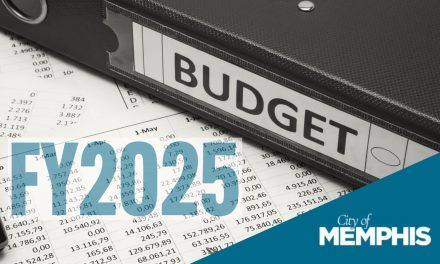Thumbnail: The current PILOT programs are not improving key indicators for Memphis workers and calls for a greater commitment to fiduciary duties for Memphis City Council and Shelby County Board of Commissioners. Here are 10 suggestions for helping make that happen.
**
The last blog post pointed out key indicators that have gotten worse in the past 20 years as more and more tax breaks were handed out.
In the wake of that performance, greater commitment to their fiduciary responsibilities is called for.
Much of the PILOT programs take place in the absence of a real economic development plan, resulting sometimes in tax holidays for corporations that have reduced hourly wages for African Americans.
While I am not one of the “never ever” anti-PILOT people, there’s not much in the performance of the Memphis and Shelby County economy in the past 20 years to suggest that the tax freezes should be treated like the magic answer to a stronger, more balanced economy. After all, in the past decade, while all agencies with PILOT authority told corporations and developers that they did not have to pay about $750-800 million dollars in taxes, our community lost ground and were lapped by cities that used to aspire to become us.
Meanwhile, a regular talking point of politicians and economic development types here is that we are the midst of $15 billion of investment, proving conclusively that our community is on a roll. The fact that precious few of these investments in Memphis and Shelby County received PILOTs attests to the reality that tax freezes are not needed for growth and often are merely lagniappe for projects that were going to happen anyway.
In other words, we can see clearly now that giving away taxes is not the factor that produces the kind of economy, the kind of living wage jobs, and the kind of community that we all want. And yet, we soldier on with the PILOT entitlement program rather than create the agenda that can result in the economic strength that we really need. In the end, it’s an example of doing the same and expecting different results and we all know what that is the definition of.
Modest Proposals
Because hope springs eternal, here are my modest proposals for fulfilling fiduciary duties, answering core questions: Who benefits, who pays the costs, and how can they be improved:
* Memphis City Council and Shelby County Board of Commissioners should require a quarterly report that provides their members with data about each PILOT approved by the nine agencies given the authority to waive taxes. These are the basics: the amount of the tax freeze and the length of its term, but there is also other data: the cumulative amount of taxes waived and the tax break per job cost with each PILOT.
* Memphis City Council and Shelby County Board of Commissioners should demand the median salary for every PILOT rather than the average salary that is now noted but skews the number higher because of management salaries. The median income is a truer indicator of the actual per job salaries, but in addition, legislators should ask for a breakdown of the jobs by category and salaries for each category. Finally, each PILOT should be weighed for its impact in closing the racial income gap and reducing poverty.
* Memphis City Council and Shelby County Board of Commissioners should demand to know how much school funding is lost with each PILOT. Based on our rough calculations, the current PILOTs waive about $10 million a year that would otherwise go to schools. The public deserves to know the amount of incentives that are being financed by cuts in education spending and as much as anything, we need to understand how less funding for schools can in the long run result in wage losses.
* Memphis City Council and Shelby County Board of Commissioners should demand to know what percentage of the total project is comprised by the PILOT amount, and if that percentage exceeds a specified amount, say 10%, the legislative bodies’ approval should be required. Today, there are apartment projects where PILOTs amount to 25% of the total cost.
More Checks and Balances
* Memphis City Council and Shelby County Board of Commissioners should require that its approval is needed if a project is to receive more than one incentive. For example, there was a time when a developer of a project was given a menu of incentives – PILOT, TIF (Tax Increment Financing), or direct city or county funding – and one of them was selected. Sometimes, now, developers say, “all the above.” Each project should select its primary incentive, if it deserves one. If it wants more, the legislative bodies should have a voice in the decision.
* Memphis City Council and Shelby County Board of Commissioners should require a yearly report from each agency approving PILOTs about their targets and priorities for the coming year, and it should be followed yearly by an annual report that measures success against its objectives. In addition, EDGE should report on its progress in the Memphis and Shelby County Regional Economic Development Plan which it was crucial in creating in 2014.
* Memphis City Council and Shelby County Board of Commissioners should require EDGE and Greater Memphis Chamber to provide them with a plan to focus less on tax incentives and more on individualized incentives for small and medium-sized businesses, particularly minority-owned ones. Smarter economic development encourages local job creation rather than the redistribution of business tax burdens to small businesses and away from large, often out-of-state, corporations.
* Memphis City Council and Shelby County Board of Commissioners should examine the current matrix used for calculating the amount and term of PILOTs to determine if they agree with the weighting and whether greater emphasis should be on people and salaries than construction and real estate. In doing this, they should consult with the economists in our universities who are routinely ignored in the economic development process while every CEO is treated as an expert in economic growth.
More Public Information For The Public
* Memphis City Council and Shelby County Board of Commissioners should consider setting a baseline amount of taxes that the various boards can approve each year and to approve more, they would have to receive approval by the legislative bodies.
* Memphis City Council and Shelby County Board of Commissioners should commission an independent analysis of the recent Beacon Center of Tennessee report that concluded that EDGE is guilty of gaming its economic impact reports with indirect growth calculations, which produces $65.6 million in lost tax revenues for Memphis and Shelby County. This doesn’t even take into consideration the badly flawed retention PILOT program which means that some huge corporations will never pay their fair share of local property taxes at the same time they benefit from public services and infrastructure.
A core principle of tax incentives is that they should not be given at the expense of economic development factors that are just as important, such as workforce development, quality of life, public transit, and more. The current PILOT programs today drain funding that is needed as investments in other economic development factors that need to be in place for a successful local economy.
***
Join us at the Smart City Memphis Facebook page for daily articles, reports, and commentaries relevant to Memphis and the conversations that begin here.





